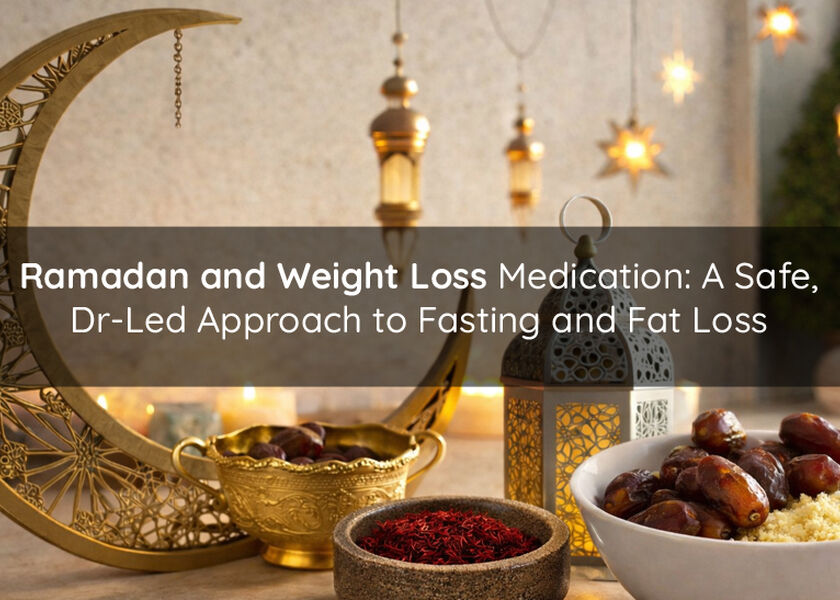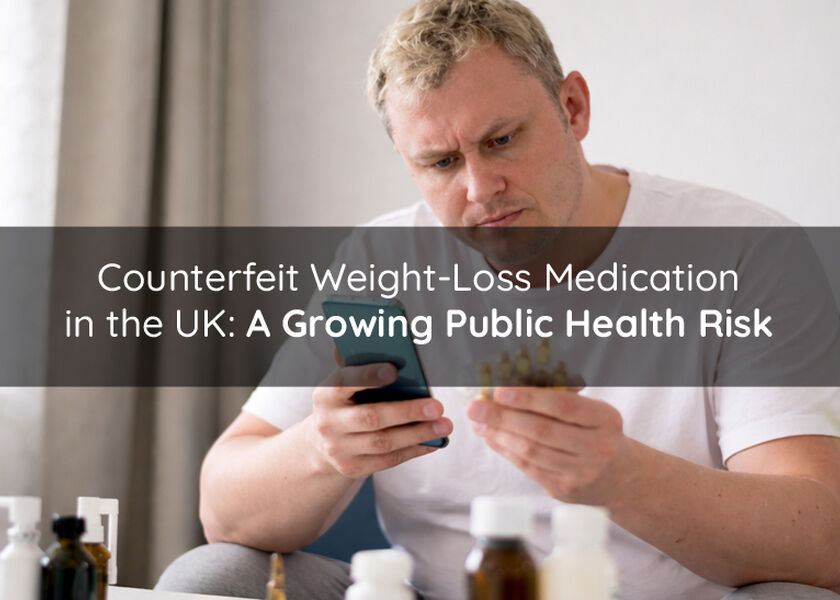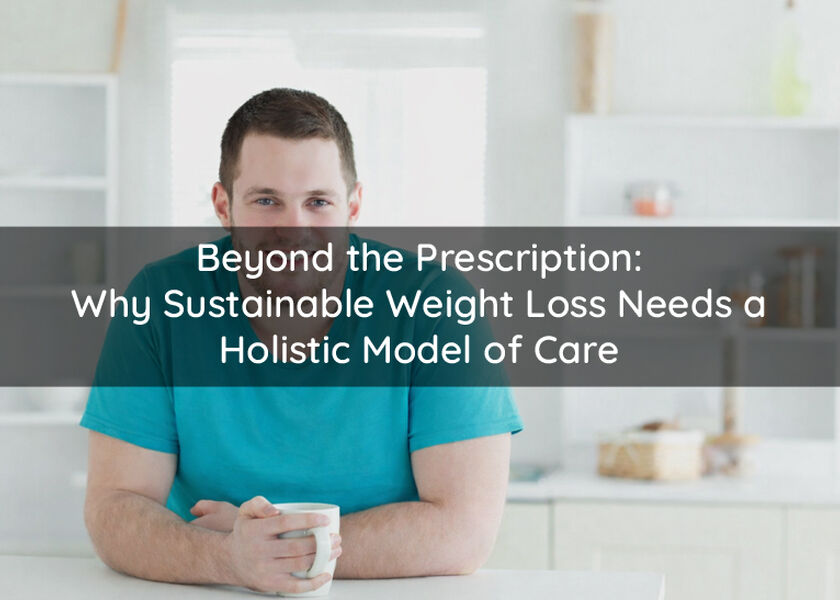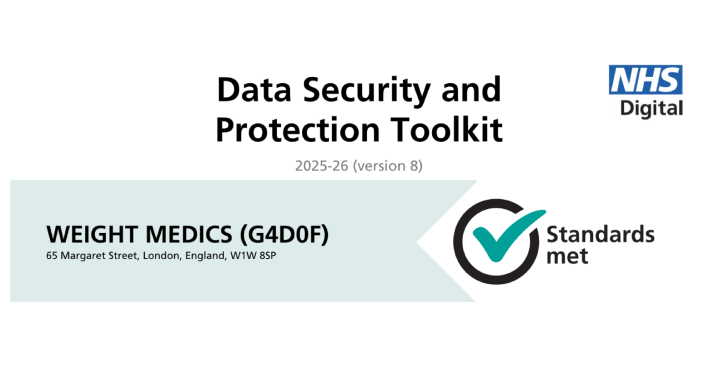
At Weight Medics, we understand that perimenopause—the transitional phase before menopause—comes with a unique set of challenges. One of the most common and frustrating is weight gain, particularly around the abdomen. But it’s not inevitable.
With evidence-based nutritional guidance, lifestyle adjustments, and—when appropriate—medical weight loss solutions such as Phentermine, Wegovy (semaglutide), or Mounjaro (tirzepatide), managing perimenopausal weight can be both achievable and sustainable.
Why Nutrition During Perimenopause Matters
Eating well during perimenopause is about more than maintaining your figure—it's about supporting hormonal balance, preventing muscle loss, and protecting your long-term health. Fluctuating levels of oestrogen and progesterone can lead to shifts in fat distribution, mood changes, and increased risk for metabolic conditions. At Weight Medics, we focus on tailored nutritional strategies that reduce fat accumulation and support hormonal resilience.
What Causes Perimenopausal Weight Gain?
The root causes are multifactorial:
- Hormonal fluctuations shift fat storage to the abdomen
- Muscle loss (sarcopenia) slows metabolism
- Genetic factors influence fat distribution
- Lifestyle habits (such as poor sleep or stress eating) exacerbate weight gain
- As you lose muscle, your basal metabolic rate (BMR) drops, meaning you burn fewer calories at rest [1]. Without adjusting your diet or activity levels, fat gain becomes much more likely.
Pro Tip: Working with a clinician-led team like Weight Medics can help address both hormonal changes and metabolic slowdown through integrated treatment plans.
Top Nutritional Strategies to Manage Menopausal Weight Gain
1. Eat More Phytoestrogens
Phytoestrogens are plant-based compounds that can gently balance hormones without synthetic hormone therapy [2].
Great sources include:
- Isoflavones: Soybeans, chickpeas, lentils
- Lignans: Flaxseeds, oats, carrots, broccoli
- Coumestans: Sprouted mung beans, alfalfa
Try adding flaxseeds or edamame to your daily meals for natural hormonal support.
2. Prioritise Plant Diversity
Eating a colourful “ rainbow” variety of fruits and vegetables provides antioxidants that combat cellular ageing and support detoxification. Aim for 5–7 servings (80–100g each) daily.
3. Choose Complex Carbohydrates
Complex carbs help stabilise blood sugar and improve energy levels. Opt for choices that can reduce insulin spikes that lead to belly fat accumulation [3]
- Brown rice
- Whole grain bread
- Quinoa
- Oats
4. Go Organic When Possible
Choosing organic produce helps limit exposure to xenoestrogens—chemical compounds that can mimic oestrogen and worsen hormonal imbalances [4].
5. Reduce Saturated and Trans Fats
Limit intake of:
- Butter, fatty meats, ghee (saturated fats)
- Packaged snacks and pastries (trans fats)
- These fats fuel inflammation and contribute to gut dysbiosis, which may exacerbate menopausal symptoms.
6. Get More Omega-3 Fatty Acids
Foods rich in omega-3s reduce inflammation, support brain health, and improve mood [5].
Include options such as salmon, sardines walnuts and flaxseeds in your diet
7. Stay Hydrated
Dehydration can mimic hunger and slow fat metabolism. Aim for at least 2 litres of water or caffeine-free herbal tea daily.
8. Boost Fibre Intake
Both soluble (beans, fruit, oats) and insoluble fibre (whole grains, vegetables) help regulate cholesterol, improve satiety, and nourish your microbiome.
9. Avoid Artificial Ingredients
Skip foods with:
- Artificial colours
- Preservatives
- Sweeteners (like aspartame)
- Choose whole, minimally processed foods for better hormonal balance.
10. Limit Caffeine and Alcohol
- Caffeine can spike cortisol and worsen hot flushes
- Alcohol may interfere with sleep, hydration, and blood sugar regulation [6]
- Switch to herbal teas or sparkling water with lemon.
11. Ditch the Refined Sugar
Refined sugars lead to energy crashes, insulin resistance, and fat storage. Read labels carefully and avoid hidden sugars in sauces, cereals, and “low-fat” snacks.
Move More, Stress Less: Exercise During Perimenopause
Physical activity is crucial to maintaining a healthy metabolism during perimenopause. At Weight Medics, we recommend a combination of:
- Brisk walking or jogging
- Resistance band or weight training
- Yoga or Pilates
- High-Intensity Interval Training (HIIT)
- A minimum of 150 minutes per week is ideal, as per NHS guidelines [7]. Exercise not only builds lean muscle but also improves mood, sleep, and hormone regulation.
Medical Weight Loss Support for Perimenopausal Women
When diet and exercise aren’t enough, medically-supported interventions can provide the missing link. AtWeight Medics, we offer:
Phentermine: A powerful appetite suppressant for short-term use
Wegovy (semaglutide): A weekly injection that supports blood sugar control and long-term weight loss
Mounjaro (tirzepatide): A dual-action GLP-1/GIP receptor agonist that helps manage weight and insulin resistance
All medications are prescribed following an in-depth consultation and are fully supervised by our medical team.
Work with Weight Medics: Personalised Support You Can Trust
We understand how personal and challenging perimenopausal weight gain can be. That’s why we provide:
- Tailored meal and supplement plans
- Hormonal and metabolic assessments
- Medical weight loss medications when appropriate
- Ongoing support from experienced clinicians
- Whether you’re navigating early symptoms or deep into menopause, our personalised weight loss programmes are designed to work with your hormones—not against them.
Ready to Take Back Control?
If you’re struggling with perimenopausal weight gain and hormonal changes, Weight Medics is here to help. With our unique combination of medical supervision, lifestyle coaching, and advanced treatments like Phentermine, Wegovy, and Mounjaro, we can support your journey to vibrant health.
Book your personalised consultation today and take the first step toward hormone harmony and healthy weight management.
Written by Dr Debra Marcos | MBBS
References
- Harvard Health Publishing. (2021). Why muscle mass matters
- Mayo Clinic. (2023). Phytoestrogens and menopause
- NHS. (2023). The Eatwell Guide
- Environmental Working Group. (2022). Hormone Disruptors in Food
- National Institutes of Health (NIH). (2021). Omega-3 Fatty Acids Fact Sheet
- British Menopause Society. (2022). Alcohol and menopause symptoms
- NHS. (2023). How much exercise is enough?
- Why Nutrition During Perimenopause Matters
- What Causes Perimenopausal Weight Gain?
- Top Nutritional Strategies to Manage Menopausal Weight Gain
- Move More, Stress Less: Exercise During Perimenopause
- Medical Weight Loss Support for Perimenopausal Women
- Work with Weight Medics: Personalised Support You Can Trust
- Ready to Take Back Control?








